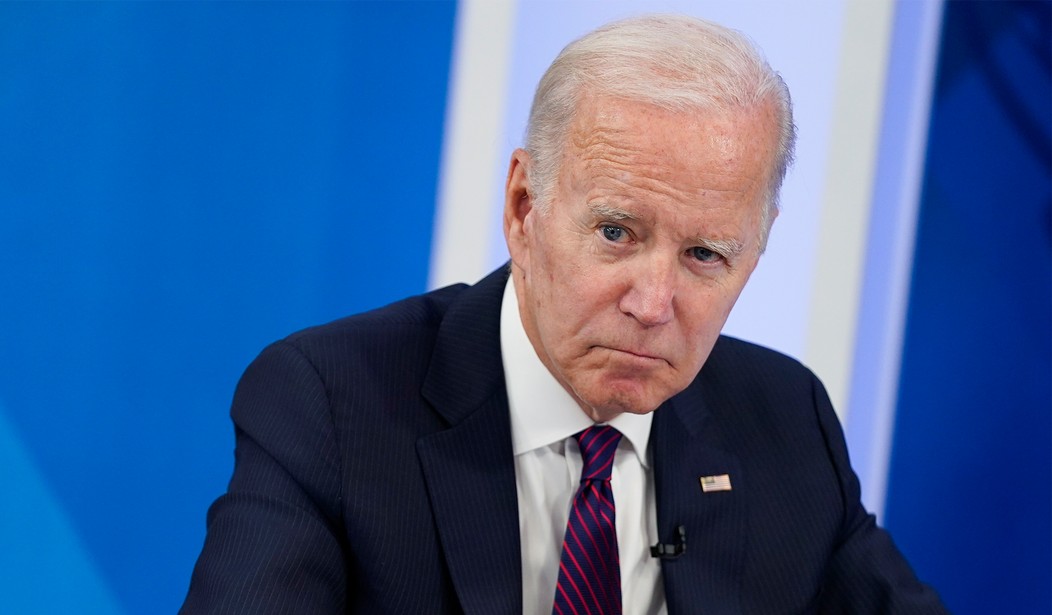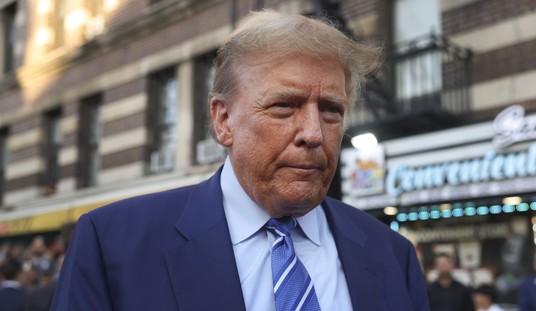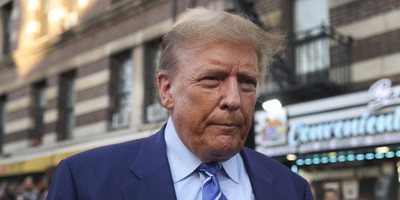It's been a few weeks since the White House communications staff was forced to spring into action for a clean up on aisle Biden, but it came again this weekend courtesy of a 60 Minutes interview with the president. Again, as before — after clearly not learning his lesson — Joe Biden pledged the United States military to the defense of Taiwan should China try to seize the territory by force.
"Would U.S. forces defend the island?" asked 60 Minutes' Scott Pelley.
"Yes, if in fact there was an unprecedented attack," President Biden's answered.
"So unlike Ukraine — to be clear sir — U.S. forces, U.S. men and women, would defend Taiwan in the event of a Chinese invasion?" Pelley asked to offer the president a chance to clarify his position — the kind of do-over never afforded to conservative politicians.
"Yes," was again Biden's answer in the interview. But the story doesn't end there.
President Biden tells 60 Minutes that U.S. men and women would defend Taiwan in the event of a Chinese invasion. However, after our interview, a White House official told us that U.S. policy on Taiwan has not changed. https://t.co/ANg54LifSH pic.twitter.com/V5qjoqF36T
— 60 Minutes (@60Minutes) September 19, 2022
According to a voiceover from Pelley during the interview that aired on Sunday evening, "after our interview, a White House official told us U.S. policy has not changed. Officially, the U.S. will not say whether American forces would defend Taiwan," Pelley continued. "But the commander in chief had a view of his own." No kidding.
Recommended
Indeed, Biden does. And that "view of his own" has caused multiple headaches for the president's handlers in the White House who are forced to quickly do damage control when his words stray from their policies. That practice has caused somewhat understandable frustration for Biden, who is constantly being undermined by his own aides.
Back in May, as Townhall reported at the time, President Biden answered a similar question about the United States' plan in the event of a Chinese invasion of Taiwan, and he answered in roughly the same way:
Speaking at a news conference in Japan, Biden said “yes” when a reporter asked whether he’s “willing to get involved militarily to defend Taiwan if it comes to that.”
Confirming the president’s position, the reporter again asked: “You are?”
“That’s the commitment we made,” the president responded.
That remark by Biden, too, drew quick scrambling from the White House to clarify that what Biden said was not actually the position of the United States, apparently:
"The White House quickly tried to deny that the president meant what he seemed to be saying," The New York Times added in their dispatch from Tokyo. "'As the president said, our policy has not changed,' the White House said in a statement hurriedly sent to reporters. 'He reiterated our One China Policy and our commitment to peace and stability across the Taiwan Strait. He also reiterated our commitment under the Taiwan Relations Act to provide Taiwan with the military means to defend itself.'"
Before the incident in May, Biden had similarly spoken as if he were unfamiliar with the U.S. policy toward Taiwan nearly one year ago when asked about America's response in the event of an invasion:
Last October, Biden told CNN's Anderson Cooper that "yes" the United States would come to Taiwan's defense if China launched an attack, adding "we have a commitment to do that." The White House had to quickly clarify that Biden "was not announcing any change in our policy nor has he made a decision to change our policy."
The head-scratcher now remains how Biden, who has repeatedly stated what his response to a Chinese invasion of Taiwan would be — U.S. forces in direct conflict with China — squares his position with his aides' stated policy of arming and training Taiwan but not being directly involved in a conflict, more like what Biden's done with Ukraine against Russian forces.
That also raises the question of who is really deciding what happens inside the White House? Is it Biden, or is it his handlers who scramble to correct Biden's statements rather than letting Biden speak for the United States? As Biden's previously stated frustrations indicate, he's as unhappy with the now long-running practice of the White House explaining what he "meant" to say as Americans may be unnerved by the question of who's deciding the direction of their country.
























Join the conversation as a VIP Member